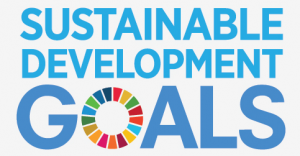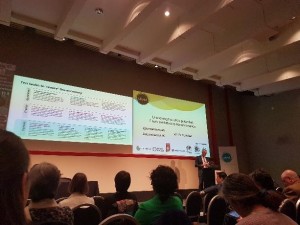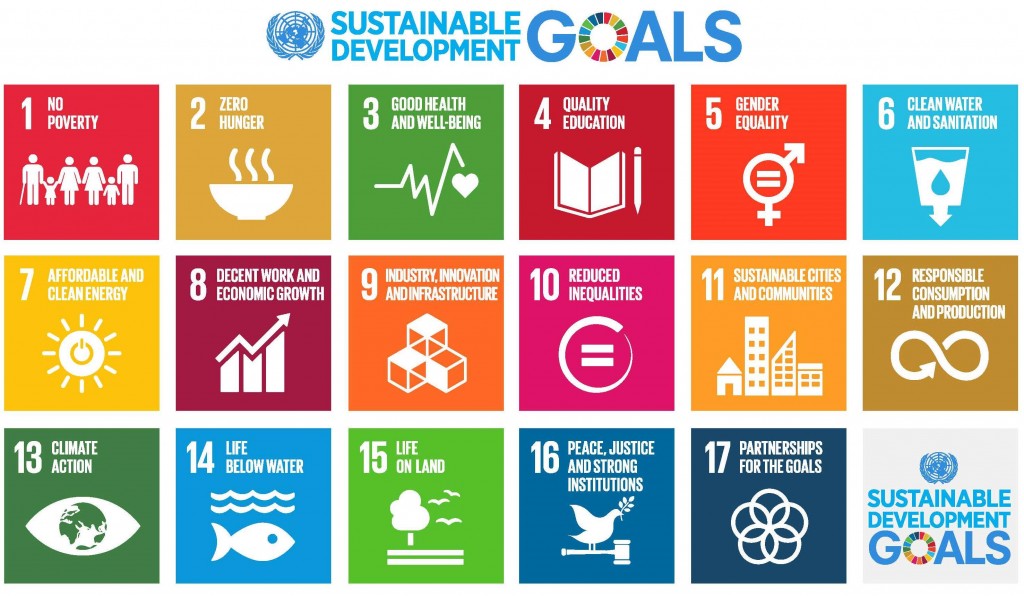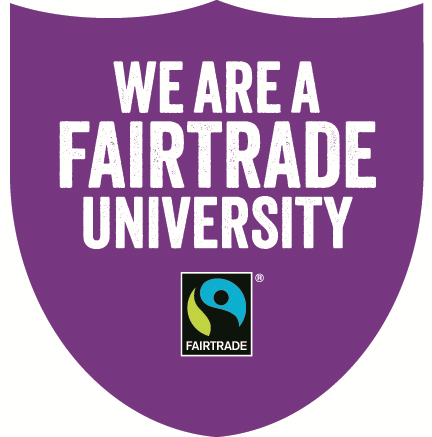Earlier this month, the UK Stakeholders for Sustainable Development (UKSSD) held their annual conference in London. The theme this year was how to translate the UN Sustainable Development Goals (SDGs) into actions in the UK.
 The conference started with a keynote speech by Amanda MacKenzie OBE, who highlighted the importance of getting everyone involved. When the SDGs were unveiled, she ran a campaign to get word about them out there. One of the key messages of this was the importance of using simple language everyone understands. This is why she refers to the goals as Global Goals rather than SDGs, claiming the term SDGs “sounds like something you would see your doctor about”. By calling them the Global Goals and making them accessible, we should be able to take millions of small, simple actions, together adding up to significant change.
The conference started with a keynote speech by Amanda MacKenzie OBE, who highlighted the importance of getting everyone involved. When the SDGs were unveiled, she ran a campaign to get word about them out there. One of the key messages of this was the importance of using simple language everyone understands. This is why she refers to the goals as Global Goals rather than SDGs, claiming the term SDGs “sounds like something you would see your doctor about”. By calling them the Global Goals and making them accessible, we should be able to take millions of small, simple actions, together adding up to significant change.
Prior to the event, key partners of the UKSSD sent an open letter to Prime Minister Theresa May, asking what the government is doing, and will do, to work towards the SDGs. Lord Bates, Minister of State for the Department for International Development, took to the stage to respond on behalf of the government. He claimed that with Brexit, the SDGs can provide an important framework for the UK to face outwards again.
One aspect that was highlighted several times throughout the day was that the SDGs do not only apply to the developing world. Dr Graham Long from the University of Newcastle did extensive research on how the UK is doing compared to the goals – with the conclusion that there is work to be done within the UK too. For example, many see Goal 1 (No poverty) as only applying to the developing world. However, Dr Long showed that over 15% of households live under what is considered the poverty line in the UK. Similarly Goal 2 (Zero hunger) is not only about the absence of hunger – it is also about the presence of good nutrition.
So how can we achieve the goals and targets associated with them?

Dr Jake Reynolds presenting his plan to ‘rewire’ the economy
According to Dr Jake Reynolds from CISL, it is all about ‘rewiring’ the economy. At the moment, sustainable businesses face many challenges, and one could argue that the game is tilted against them. We need to change this to a system where sustainable businesses have the advantage. Dr Reynolds presented his 10-task plan to make this happen, calling to the government, business and the financial sector to implement changes.
Talking about how businesses can have an impact and implement changes, another session focussed on leadership within organisations. While we often talk about wanting change to happen, few of us make changes themselves, and even fewer are ready to lead change.
In the afternoon, John Elkington chaired a panel discussing ‘Transforming lives’. One main point from the discussion was the importance of having a positive message. Mike Barry from Marks & Spencer’s Plan A said that to achieve the SDGs, we need to get people excited about them. Trewin Restorick from Hubbub reinforced this, sharing some of the positive and fun campaigns the charity Hubbub has run over the last year. As they are our next-door neighbours at Somerset House, you might have noticed us sharing some of their great ideas (including #BrightFriday and the Square Mile Challenge we will be taking part in). Another idea that was mentioned during this panel debate was that of Doughnut Economics by Kate Raworth – if you have followed our Sustainability Week, you might have heard her speak at our successful Overpopulation vs Overconsumption debate.
Overall, the conference gave attending businesses a good insight into why the SDGs matter, both at home and abroad, as well as how they can support them by promoting them in their organisation. As was repeated many times during the conference, we need everyone involved if we want to stand a chance at achieving the SDGs – this includes government, business, and every single one of us.



 The conference started with a keynote speech by Amanda MacKenzie OBE, who highlighted the importance of getting everyone involved. When the SDGs were unveiled, she ran a campaign to get word about them out there. One of the key messages of this was the importance of using simple language everyone understands. This is why she refers to the goals as Global Goals rather than SDGs, claiming the term SDGs “sounds like something you would see your doctor about”. By calling them the Global Goals and making them accessible, we should be able to take millions of small, simple actions, together adding up to significant change.
The conference started with a keynote speech by Amanda MacKenzie OBE, who highlighted the importance of getting everyone involved. When the SDGs were unveiled, she ran a campaign to get word about them out there. One of the key messages of this was the importance of using simple language everyone understands. This is why she refers to the goals as Global Goals rather than SDGs, claiming the term SDGs “sounds like something you would see your doctor about”. By calling them the Global Goals and making them accessible, we should be able to take millions of small, simple actions, together adding up to significant change.

